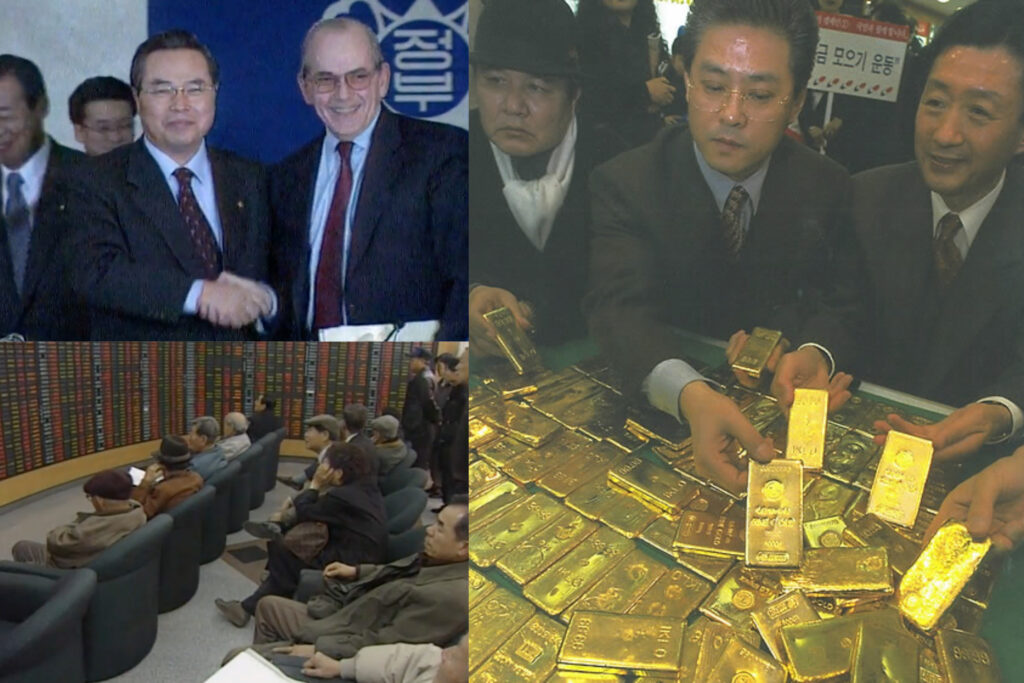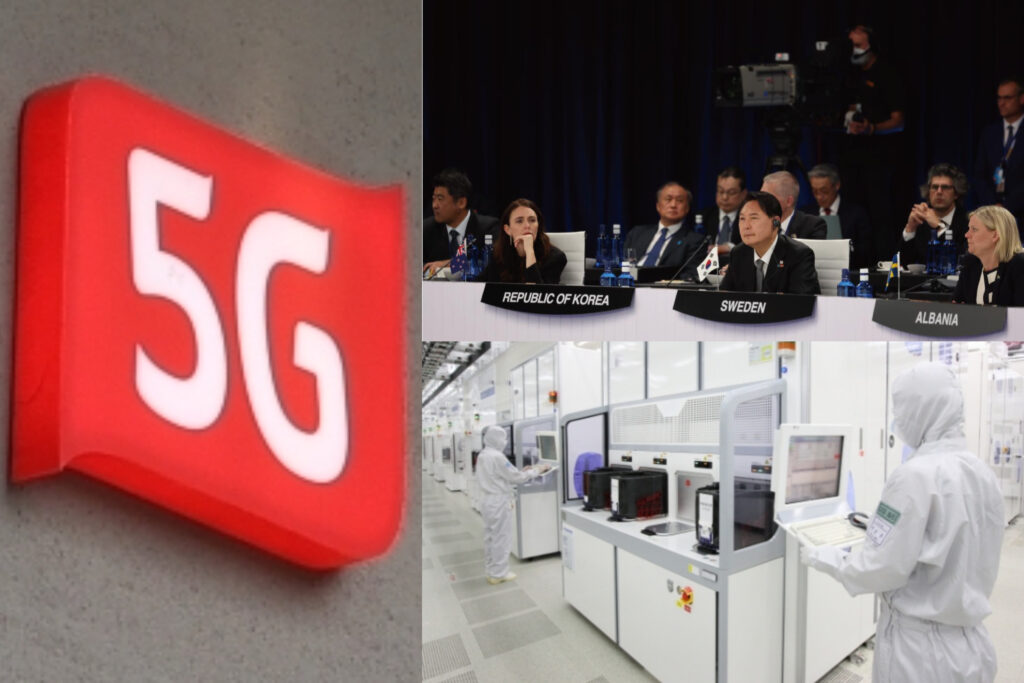
About 160 people were killed in recent casualties caused by the Itaewon Halloween Festival among Korean teenagers and 20s. And through the communication of the whole country, the company revealed the vanity of big tech companies due to the failure of KakaoTalk messenger. In addition, North Korea fired several missiles into the eastern sea of South Korea. Prices of 84 square meters of premium apartments, the majority of Koreans’ residential culture, are plunging. Due to the interest rate hike, the burden of loans increases, and apartment real estate purchased excessively is not even traded. Prices have been cut by more than 30% and the volume of apartmenthe chaotic situation in Korea
About 160 people were killed in recent casualties caused by the Itaewon Halloween Festival among Korean teenagers and 20s. And through the communication of the whole country, the company revealed the vanity of big tech companies due to the failure of KakaoTalk messenger. In addition, North Korea fired several missiles into the eastern sea of South Korea. Prices of 84 square meters of premium apartments, the majority of Koreans’ residential culture, are plunging. Due to the interest rate hike, the burden of loans increases, and apartment real estate purchased excessively is not even traded. Prices have been cut by more than 30% and the volume of apartments sold is high, and interest and transactions are decreasing due to the fall in the real estate market. In addition, casualties have continued day after day, including the collapse of the apartment construction site and the accident of the bakery worker. South Korea, an economic powerhouse with the G7, is a powerful country with great people’s power to overcome the crisis. In 1950, it quickly emerged as the world’s leading manufacturing exporter from a war-torn country, is a state-of-the-art developer of IT, telecommunications, and semiconductors, and is trying to surpass China, the world’s fourth-largest defense export, or weapons development and manufacturing country. On December 3, 1997, it faced the foreign exchange crisis and received IMF support financing to overcome it.

This economic crisis was directly caused by a severe lack of foreign exchange liquidity, but underlying it was caused by poor management with high cost and low efficiency due to excessive borrowing by companies.
At that time, companies had already deteriorated their financial structure due to excessive investment through excessive borrowing, and large companies such as Hanbo Steel and Kia Motors were on the verge of going bankrupt due to excessive financial costs.
Corporate bankruptcies have led to insolvency of many financial institutions, including creditor banks and general financial firms.
The decline in national credibility, with companies going bankrupt in a row and the credibility of corporate accounting data becoming a problem, has provided an excuse for foreign investors to withdraw from the stock market.
This decline in the credibility of the national economy has led to a serious economic crisis, with foreign creditors refusing to renew loans, and the government underestimating the risk of short-term foreign debt and a shortage of available foreign reserves.Along with bailout support, the IMF strongly called on us to reform the financial industry and restructure the industry as a whole to address financial insolvency, as well as to balance macroeconomic contractions such as fiscal and monetary tightening and downward revision of growth rates.
Amid structural reforms across all sectors of the economy and society, high interest rates continued and consumption and investment shrank due to corporate and financial restructuring, economic growth was minus 6.7% in 1998. However, since 1999, the economy has recovered rapidly due to the expansion of private consumption and strong exports, maintaining a stable economic growth rate of 4%.
In the early days of the financial crisis, ultra-high interest rate tightening policy induced foreign investment, exchange rate stabilization, and price stabilization, but as the economy stagnated faster than expected, the policy was changed to full-fledged stimulus measures such as low interest rates and fiscal spending.
The number of unemployed once reached 1.8 million in the wake of corporate bankruptcy and restructuring, but the unemployment rate stabilized at 4.1 percent in 2000 due to the gradual employment absorption through the economic recovery, but still exceeded the pre-crisis level.To overcome the economic crisis, not only the financial sector, but also the public and private sectors needed strong restructuring, thereby enhancing our competitiveness. In addition, promoting exports, attracting foreign investment, and creating employment have emerged as urgent tasks.
Information and communication has begun to be recognized as an essential strategic tool for resolving various pending issues and continuing economic growth in this national economic crisis.
Indeed, from the late 1980s to the early 1990s, despite the global economic downturn, the United States reformed its economic structure by investing much higher than its own economic growth rate in the information and communications sector.
As a result, it was able to achieve continuous growth and unprecedented low unemployment and restore the world’s No. 1 competitiveness, which was behind Japan.
As in the U.S., Korea’s information and communication industry is expected to play a driving role in restoring the economy, and policies to improve laws and systems to boost foreign investment, promote exports of the information and communication industry, and foster information and communication personnel to create and expand employment.In order to overcome the economic crisis and upgrade the economic structure, a policy to foster the information and communication industry as the leading industry in our economy was required.
In order to strengthen the international competitiveness of the domestic information and communication industry, it was necessary to introduce advanced management techniques and advanced technologies that could strategically partner with advanced information and communication industries and trigger foreign investment.

At that time, foreign investors pointed out complex regulatory systems such as Korea’s licensing and licensing systems, differentially applied entry systems such as restrictions on foreign shares, and unfavorable public sentiment toward foreigners’ investment and management participation as obstacles to investment.
The Ministry of Information and Communication revised the Telecommunications Business Act in September 1998, abolishing restrictions on the same person’s stake in key telecommunications businesses, expanding the foreign investment limit in Korea Telecom from 20% to 33%, and expanding the foreign stake in the separate telecommunications business to 49%.
Since July 1999, the foreign investment environment has been greatly improved by expanding the limit on foreign ownership in key telecommunications businesses from 33% to 49%.
In addition, mergers and acquisitions of key telecommunication businesses, which had been strictly regulated to promote foreign investment in the information and communication sector, were allowed in principle if there were no problems in maintaining fair competition order and protecting users, and actively encouraged consortiums of domestic and foreign companies participating in public information projects.
To stimulate foreign investment, the government eased regulations and promoted investment. In addition, as a result of actively attracting investment, about $2 billion, or 23% of Korea’s total foreign investment, was made in the information and communication sector in 1998.
ASIA JOURNAL
JENNIFER KIM

